Brexit and Stormont deadlocks: Autumn brings packed political diary
- Published
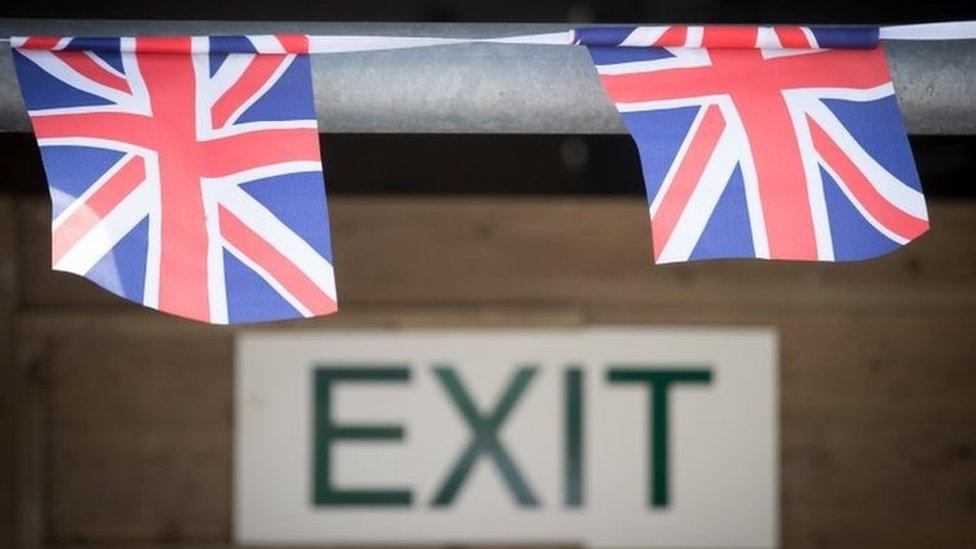
Brexit has dominated the world of politics since the referendum vote took place more than three years ago
It feels like hardly any time at all has passed since Parliament rose for recess on 25 July.
But on Tuesday, MPs return to Westminster with fewer than 60 days left until Brexit is due to happen.
It may be a new term, but not much has changed when it comes to resolving the Irish border backstop conundrum in the withdrawal agreement.
Here are the key political events to keep an eye on this autumn.
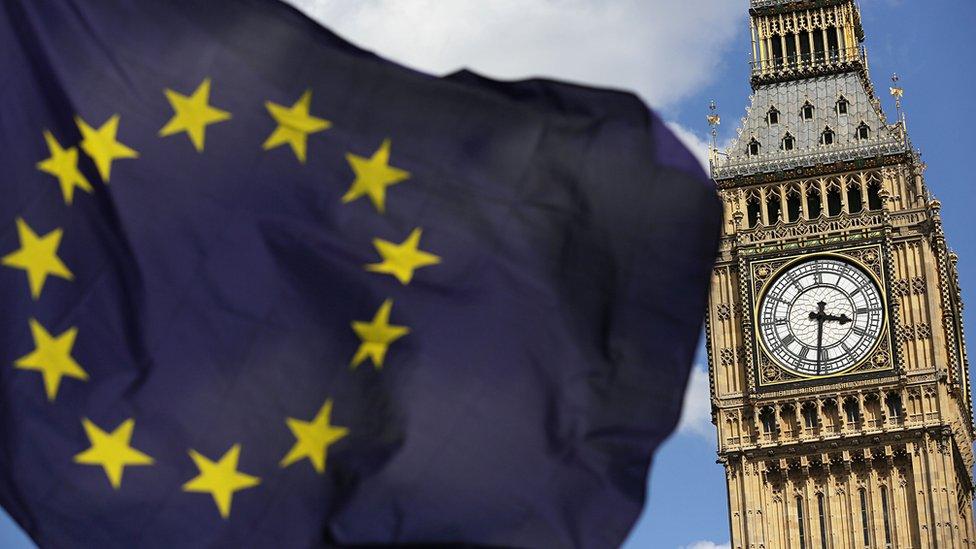
The UK's planned departure date from the European Union is coming swiftly down the tracks
Brexit
With Boris Johnson installed as the new prime minister over the summer, the government's Brexit strategy has changed.
He insists the UK will leave the EU "come what may" by the 31 October deadline - even if that means leaving without a deal.
The trickiest issue to resolve remains how to keep the border between Northern Ireland and the Republic of Ireland as seamless after Brexit, as it is now.
There's no meeting of minds between London and Dublin about the proposed solution: the backstop.
The EU has said it won't re-negotiate the deal and that the onus is on the UK to come up with "credible alternatives" to the backstop.
The government is unlikely to get a Brexit deal through Parliament unless some kind of changes are made and while opposition parties say they want to use parliamentary time to try and block a no-deal Brexit, they only have a few short days before Parliament is suspended in a fortnight's time to allow the government to hold a Queen's Speech in October.
The Democratic Unionist Party (DUP) is backing the government's strategy, but it's at odds with the other Stormont parties who have criticised Boris Johnson's latest move as "anti-democratic".
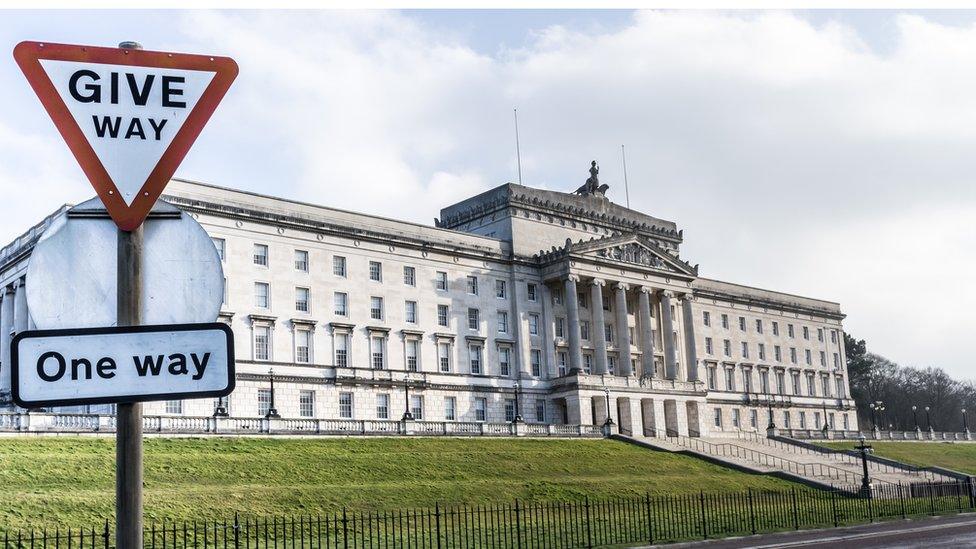
With no ministers in place, civil servants at Stormont have been making the decisions on running public services
Stormont talks
In May, fresh talks began that were aimed at restoring devolution in Northern Ireland, which collapsed more than two years ago.
The hope was that the DUP and Sinn Féin could finally break the logjam on sticking points such as an Irish language act, same-sex marriage and agreeing a new mechanism to deal with the legacy of Northern Ireland's past.
Talks have been taking place for months - but a breakthrough doesn't look likely any time soon, with relations between the two main parties still strained.
Things were further complicated last month when MPs at Westminster backed proposals to legalise same-sex marriage in Northern Ireland and liberalise abortion laws - if devolution is not restored by 21 October.
The move proved divisive, but given same-sex marriage is an issue in the talks process, it seems unlikely that Stormont parties in favour of amending the law would agree to a return to power-sharing now, given the potential for a speedy law change.
The parties will also have their annual conferences in the coming months, meaning talks may be given even less time during the autumn.
Watch this space as the clock ticks down and to see how the new Northern Ireland Secretary Julian Smith handles dealings with the parties.

The RHI scheme was set up in 2012 to encourage uptake of eco-friendly heat systems - but a flaw meant it could be exploited for profit
Renewable Heat Incentive (RHI) inquiry findings
It's been a long time coming and the impact of the financial scandal that originally collapsed the Stormont assembly endures.
If you need a reminder of what the RHI scheme was, here's an explainer.
Last November, a public inquiry that was set up to find out how and why the green energy scheme faltered ended its hearings.
Since then, its chair Sir Patrick Coghlin, a retired judge, has been drawing together his findings, from swathes of testimony and evidence.
Few people know the exact date his report will be published - but it's thought it will be released at some stage this autumn.
Senior DUP figures, including the party leader Arlene Foster, gave evidence to the inquiry as well as high-profile civil servants.
Last year, Mrs Foster said she was "deeply sorry" for her party's handling of the scheme.
It is not clear what impact the findings could have on a potential return to power sharing.
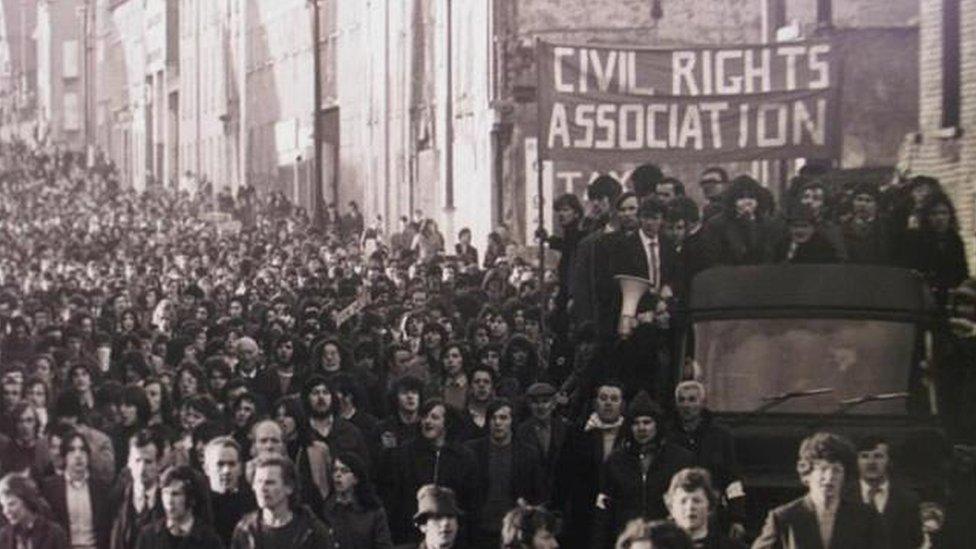
Demonstrators took part in a civil rights march through the streets of Londonderry before the shootings on 30 January 1972
Soldier F trial
In March, the Public Prosecution Service (PPS) announced an ex-British soldier would face trial for the murders of two men killed on Bloody Sunday.
Thirteen people were killed and 15 wounded when members of the Parachute Regiment opened fire on civil rights demonstrators in Londonderry on Sunday, 30 January 1972.
Soldier F is charged with the murders of James Wray and William McKinney, as well as the attempted murder of four others. The trial is due to begin on 18 September.
In the months since the decision, opinion has been split on whether former Northern Ireland veterans should face prosecution.
The government is working on legislation to deal with the legacy of Northern Ireland's Troubles.
In parts of Northern Ireland, flags have been put up in support of Soldier F - but some politicians and victims' groups have criticised the move.
- Published13 December 2020

- Published23 July 2019
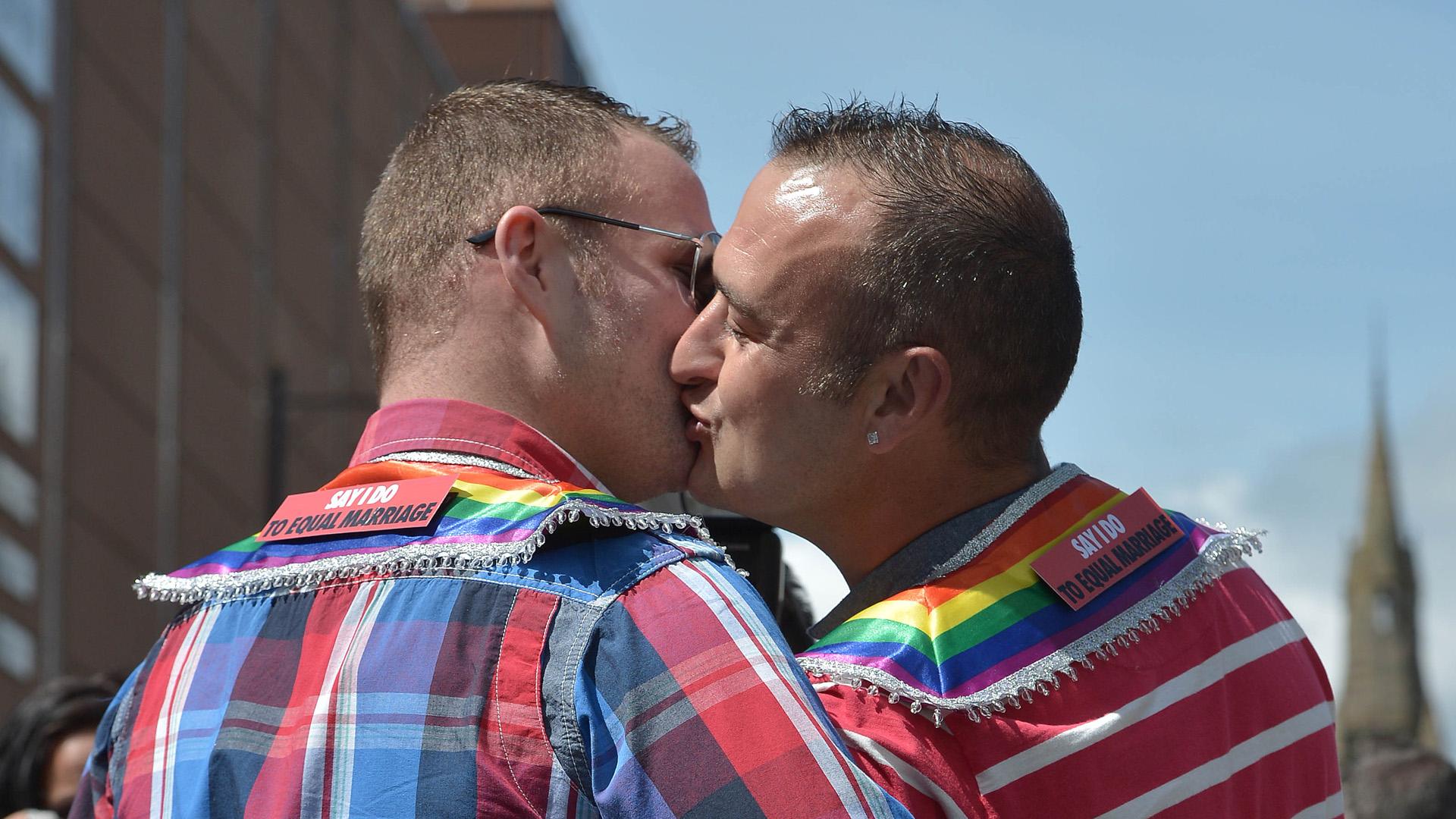
- Published14 March 2019

- Published29 October 2018
